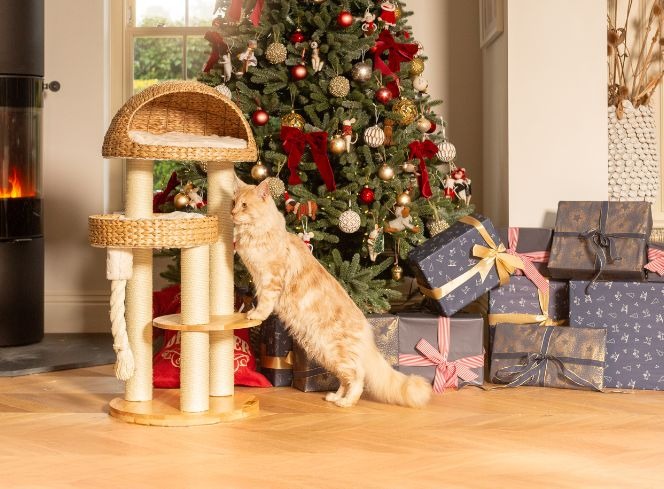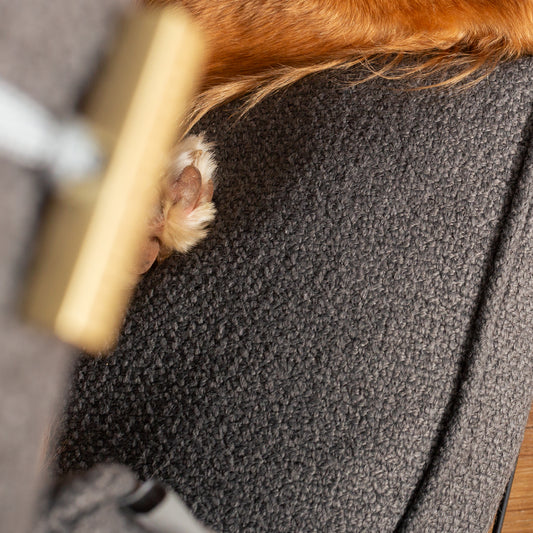If you're a cat owner, you've likely woken up to find your feline friend nestled comfortably beside you. Why does your cat sleep on your bed, and more importantly, how can you encourage them to sleep on their own? Understanding the reasons behind this behaviour is the first step in addressing it. In this article, we'll delve into the motivations of your cat's sleeping habits and provide expert tips on getting your cat to embrace their own sleeping space.
Understanding Why Cats Sleep on Your Bed
1. Comfort and Warmth
Cats are creatures of comfort. Your bed offers a soft, warm, and elevated space that appeals to their natural instincts. The layers of blankets and your body heat create an inviting environment that's hard for any cat to resist. Sleeping with your cat might seem endearing, but it's essential to consider whether this habit is beneficial for both of you in the long run.
2.Security and Bonding
Cats are often stereotyped as solitary animals, but they can form strong bonds with their human companions. Sleeping with the cat can be a sign that your feline trusts you and feels secure in your presence. This close proximity allows them to feel protected and reinforces the bond between you.
3.Territory and Ownership
Cats are territorial animals. By sleeping on your bed, they're marking it with their scent, effectively claiming it as part of their territory. This behaviour is especially common in multi-pet households where the cat might feel the need to assert dominance.
4.Habit and Routine
Cats are creatures of habit. If they've been allowed to sleep on your bed since kitten-hood, they'll naturally continue this behaviour. Changing this routine can be challenging but not impossible with the right approach.
Is It Okay for Cats to Sleep on Your Bed?

While sleeping with cats can be comforting for some owners, it's important to weigh the pros and cons.
- Health Considerations - Sharing a bed with your cat can pose health risks, especially if you have allergies or asthma. Pet dander and fur can exacerbate these conditions. Additionally, outdoor cats might carry parasites or pathogens that could be transmitted to humans.
- Sleep Disturbances - Cats are nocturnal by nature. Their active periods might disrupt your sleep as they move around, groom themselves, or engage in playful behaviour during the night. Cat is sleeping patterns differ from humans, which can lead to fragmented sleep for you.
- Personal Space - Everyone needs their personal space, including your cat. Encouraging your cat to sleep in their own bed can promote independence and reduce over-reliance on your presence for comfort.
How to Encourage Your Cat to Sleep in Its Own Bed
1. Choose the Right Bed
Investing in a high-quality cat bed is crucial. Consider factors like size, material, and design. Some cats prefer enclosed spaces that mimic a den, while others like open beds with plush cushioning. At Lords & Labradors, we offer a range of luxurious cat beds designed to cater to every feline preference, shop here.

2. Optimal Placement
Location matters. Place the cat bed in a quiet, comfortable area where your cat already likes to spend time. If your cat enjoys high places, consider an elevated bed or place the bed on a sturdy shelf, you could also try a cat tree with a bed on the top if they like elevated spaces. The goal is to make the sleep for cats as appealing as possible.
3. Make the Bed Inviting
To entice your cat to use their new bed, make it smell familiar. Placing a piece of your clothing or a blanket they've used can make the bed more inviting. Adding their favourite toys can also encourage them to spend time there. Remember, the key is to create a space where your cat sleeps on the bed comfortably, but this time, it's their own bed.
4. Positive Reinforcement
Reward your cat when they use their bed. Treats, praise, and gentle petting can reinforce the idea that their bed is a safe and enjoyable place. Avoid scolding or punishing your cat for sleeping on your bed, as negative reinforcement can cause stress and anxiety.
5. Establish a Routine
Consistency is vital. Establish a bedtime routine that signals to your cat that it's time to settle down. This could include playtime to tire them out, followed by feeding, and then guiding them to their bed. Over time, they'll associate this routine with sleeping in their own space.
6. Limit Access to Your Bedroom
If your cat persists in sleeping on your bed, you might need to restrict access to your bedroom at night. Ensure they have everything they need—food, water, a clean litter box, and a comfortable sleeping area—outside your room. This approach might require patience, but it can effectively break the habit.
Benefits of Your Cat Sleeping in Their Own Bed

Encouraging your cat to sleep independently has several advantages:
- Improved Sleep Quality: Both you and your cat can enjoy uninterrupted sleep.
- Healthier Environment: Reduces the risk of allergies and exposure to pet dander.
- Enhanced Independence: Promotes confidence and independence in your cat.
- Personal Space: Allows both of you to have your own space, strengthening the bond without over-dependence.
Conclusion
Understanding why your cat sleeps on your bed is the first step toward encouraging new habits. By providing a comfortable, appealing alternative and reinforcing positive behaviours, you can help your cat transition to their own bed. Remember, patience and consistency are key.
At Lords & Labradors, we're passionate about providing high-quality pet essentials that cater to your cat's comfort and well-being. Explore our collection of luxurious cat beds and accessories to create the perfect sleeping environment for your feline friend.








































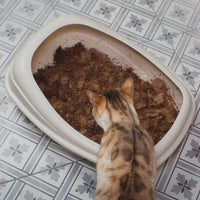



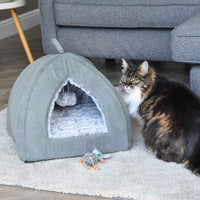








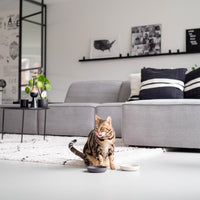





.jpg?v=1727952780423&options=)









